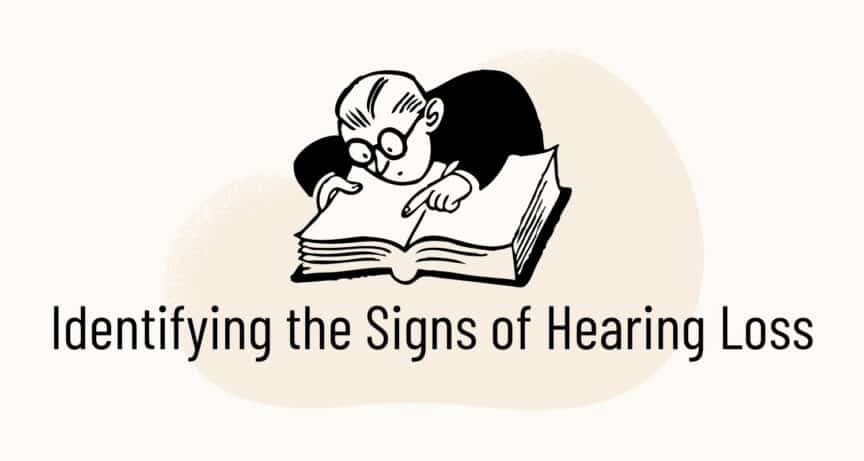
Identifying the Signs of Hearing Loss
For some people, there can be no doubt at all that hearing loss has become an issue. The problem can become quite profound not only for the individual but also for family, friends, and loved ones. However, many others can be unsure whether they have hearing loss or not. When it first begins, the process can be quite gradual, and that slow, steady onset of hearing loss can make it difficult to notice. When hearing loss begins, it tends to be accompanied by other changes in life, and those changes can make it difficult, as well.
Let’s take a moment to consider some of the signs of hearing loss. You can use these indicators to tell whether your loved one might be developing hearing loss. Although they might not notice or be willing to disclose their hearing loss to you, these signs are a good way to start a conversation about the possibility. If you notice something, simply use that experience as an opportunity to ask questions. When you ask these questions, it is more important to listen to the answers than to tell your loved one what to do next. If you can help your loved one maintain independence while seeking treatment, the process will be more beneficial for both of you.
Difficulty in Conversation
Perhaps the most noticeable change for someone who has hearing loss is a struggle to communicate. When you are in a conversation, you might notice that a certain confusion occurs. The other party may miss some keywords or syllables that make your speech meaningful. Some people even mistake hearing loss in a loved one for the onset of dementia. In addition to confusing or mistaken conversations, your loved one might ask you to repeat yourself. Even in the context of a single conversation, those requests for you to repeat yourself can happen quite frequently, and this can be a sign that hearing loss is becoming an issue.
Social Isolation
Some people who have hearing loss find the struggle to communicate so difficult that they begin to recede from social life. Rather than risk the frustration or embarrassment associated with hearing loss in a public setting, they might prefer to stay home more often. Even simple things like going to the grocery store can become challenging, making it difficult to perform the tasks of everyday life. If you notice that your loved one is staying home more often and seems to shy away from social events, you might be witnessing one of the effects of hearing loss.
Mental Health Effects
When hearing loss begins, people have quite different responses. Some take the opportunity to immediately seek a hearing test and treatment. These individuals might not have any problems with mental health associated with their condition, because they quickly take action to remain independent. However, others can have serious mental health effects. In the first place, conversations can become quite difficult, causing frustration and even anger. This anger might seem to be directed at loved ones, the situation, or even at themselves. When conversations are too difficult for too long, the emotional effects can be even greater. Some people become anxious about the next time they will be expected to hear a question and respond. They might become depressed at the loss of sensory ability or the associated difficulties in their relationships. If you notice that your loved one is having a difficult time with mental health or emotional wellbeing, many things can be the cause, and hearing loss is just one of the possibilities.
Encouraging Treatment
None of these signs is a conclusive diagnosis of hearing loss. Your loved one will need to visit our offices for a full diagnostic exam to determine if hearing loss has become an issue and if there is a need for treatment. The individual features of your loved one’s abilities will be necessary to point toward the right kind of assistance. You can leave the details up to our experts and take responsibility for simply opening up the conversation about hearing loss with your loved one. That conversation can lead to quick and effective treatment!
